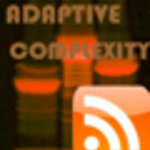
Decisive Advantage by Chris Potter in the Pittsburgh City Paper.
If I had a kid who might want to go into research for a living, I'd want them to read this story. It gives some insight into what is actually involved in doing research, even though it avoids the frustrating parts of the job.
The above article is a profile of a professor of social and decision sciences at Carnegie Mellon University, Carey Morewedge. I think it is a good, well-rounded piece of science reporting. It presents the research in a way that is accessible to regular readers and uses some of this researcher's surprising…
